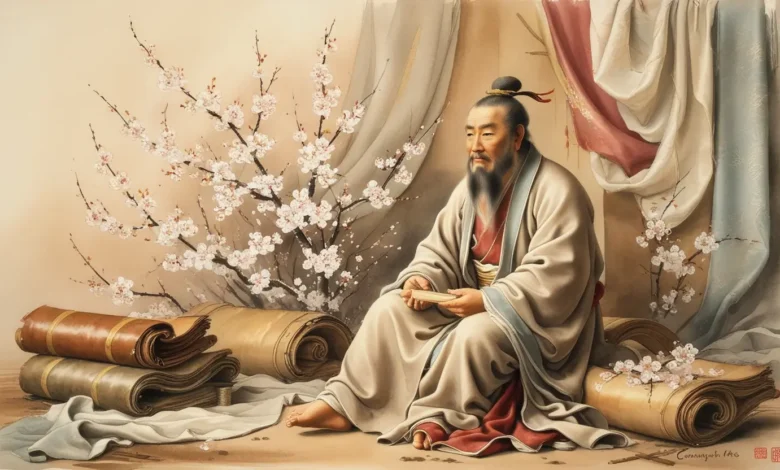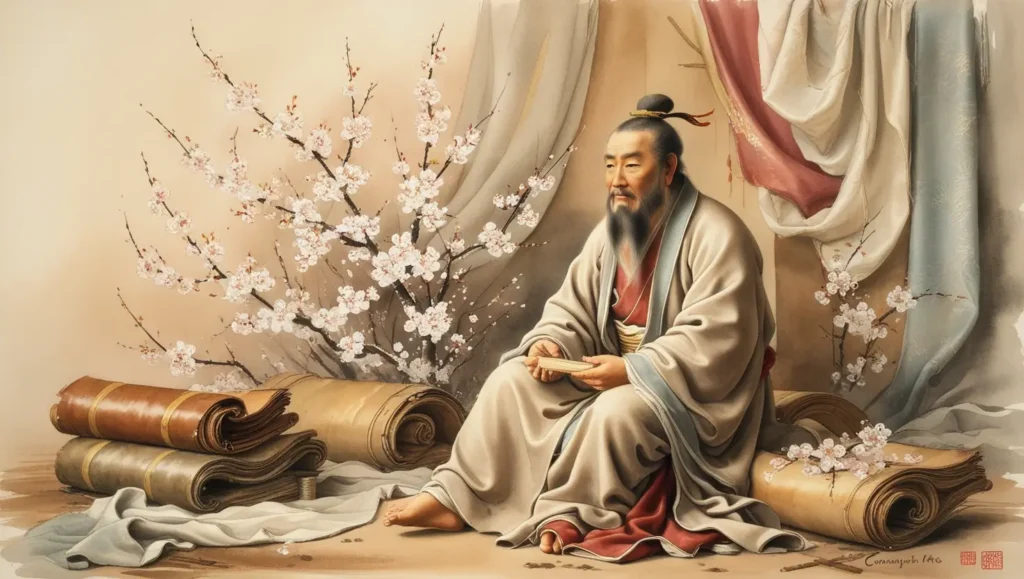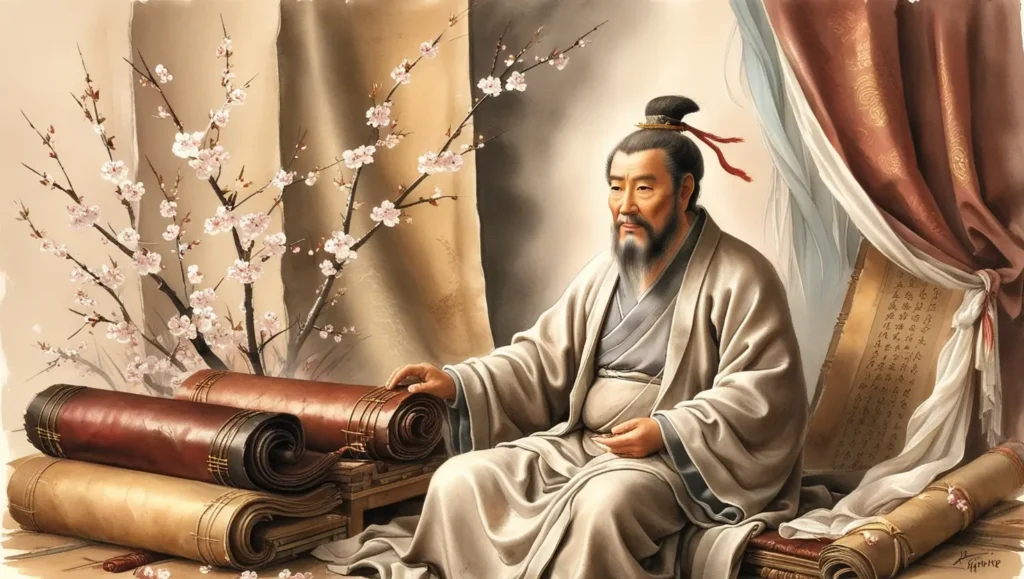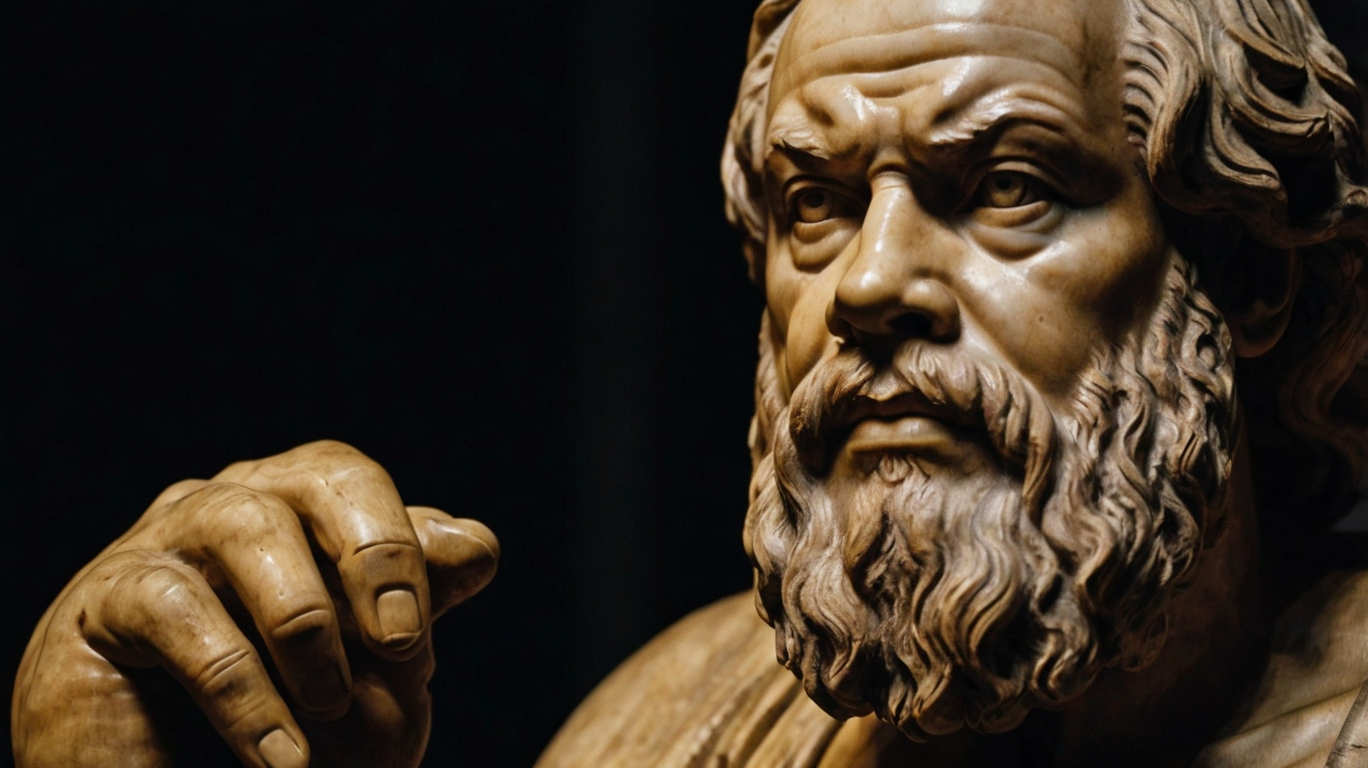Confucius (551-479 BCE) – Biography, Top 20 Best Quotes

Confucius, one of the most influential philosophers in history, left an indelible mark on Chinese culture and philosophy. His teachings on morality, ethics, and social harmony still resonate today. This article delves into Confucius’ life, philosophical roots, major works, and lasting legacy, concluding with his top 20 quotes of endless wisdom.
Confucius Biography Early Life
Confucius was born in 551 BCE in the Lu dynasty in what is now Shandong province in China. Although his family came from the upper class, they were relatively poor. Despite this humble beginning, Confucius received a broad education, studying a variety of subjects, including history, poetry, and music. His early experiences and the political turmoil of his time greatly influenced his philosophical outlook.
Philosophical basis
Central to Confucianism are the principles of personal and governmental ethics, righteous social relations, justice, kindness, and honesty, and Confucius believed that social harmony could be achieved through virtue and morality on the snow.
Basic principles of Confucianism
- Ren (Humanity): The primary quality that emphasizes compassion and empathy.
- Lee (Ritual Appropriateness): Those norms of behavior that guide daily interactions and customs, and promote social cohesion.
- Xiao (Filial Piety): Respect and devotion to parents and ancestors are considered a fundamental virtue.
Major industries are education
The teachings of Confucius were compiled by his disciples in several books, the most famous of which is “The Analects”. This collection of information and ideas forms the basis of Confucian thought.
The Use of the Analects
The Analects provide insight into Confucius’ views on morality, politics, and education.
- Book of Changes (I Ching)
- Book of History (Shujing)
- Book of Poetry (Shijing)
- Book of Rites (Liji)
- Spring and Autumn Annals (Chunqiu)
Although not all of these works were written by Confucius, they shaped his philosophical system and earned him great respect and study.
Confucianism in society
Confucianism had a profound influence on Chinese culture, shaping social values, government policies, and educational systems. They promoted the idea that rulers should be good people and rule by moral example, influencing political philosophy and governance.
Impact on Chinese culture and government
Confucian ideals of governance, honor, and responsibility permeated all aspects of Chinese life, from family dynamics to public administration. The civil service examination system, based on Confucian classics, made his teachings well known to government officials.
Effects on education and family structure
Confucianism emphasizes lifelong learning and the importance of education in personal development and social progress.
The Legacy of Confucius
Confucius’ influence extends beyond his lifetime. His teachings have influenced countless generations and are relevant to contemporary discussions of ethics and governance.
Historical Influence
During the Han Dynasty, it became the official national ideology that largely shaped Chinese civilization.
Modern benefits
Today, Confucian values are reflected in East Asian cultures and beyond. Concepts such as respect for the elderly, the importance of education, and moral governance are still relevant.
Top 20 Quotes of Confucius
“It does not matter how slowly you go as long as you do not stop.” Confucius (551-479 BCE)
“Our greatest glory is not in never falling, but in rising every time we fall.” “Our greatest glory is not in never falling, but in rising every time we fall.”
“Real knowledge is to know the extent of one’s ignorance.” Confucius (551-479 BCE)
“When we see men of a contrary character, we should turn inwards and examine ourselves.” Confucius (551-479 BCE)
“The superior man is modest in his speech but exceeds in his actions.” Confucius (551-479 BCE)
“The superior man is modest in his speech but exceeds in his actions.” Confucius (551-479 BCE)
“To see what is right and not do it is the want of courage.” Confucius (551-479 BCE)
“The man who moves a mountain begins by carrying away small stones.” Confucius (551-479 BCE)
“Wheresoever you go, go with all your heart.” Confucius (551-479 BCE)
“Ignorance is the night of the mind, but a night without moon and star.” Confucius (551-479 BCE)
“Study the past if you would define the future.” Confucius (551-479 BCE)
“He who learns but does not think, is lost! He who thinks but does not learn is in great danger.” Confucius (551-479 BCE)
“The superior man understands what is right; the inferior man understands what will sell.” Confucius (551-479 BCE)
“Virtue is not left to stand alone. He who practices it will have neighbors.” Confucius (551-479 BCE)
“He who speaks without modesty will find it difficult to make his words good.” Confucius (551-479 BCE)
“What you do not want done to yourself, do not do to others.” Confucius (551-479 BCE)
“The superior man acts before he speaks, and afterwards speaks according to his action.” Confucius (551-479 BCE)
“The cautious seldom err.” Confucius (551-479 BCE)
“When anger rises, think of the consequences.” Confucius (551-479 BCE)
“Silence is a true friend who never betrays.” Confucius (551-479 BCE)
“The superior man makes the difficulty to be overcome his first interest; success only comes later.” Confucius (551-479 BCE)





